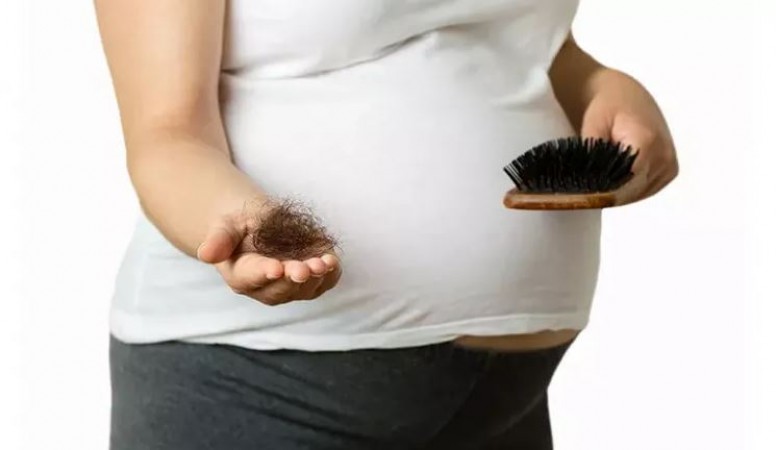
Pregnancy is a beautiful and transformative journey in a (how to prevent hair fall during pregnancy) woman's life, marked by numerous physical and emotional changes. One of the common concerns that many women experience during this period is hair fall. While it is normal to experience some degree of hair loss, understanding the causes and adopting appropriate strategies can help minimize this issue. In this article, we will delve into the reasons behind hair fall during pregnancy and provide practical tips to (how to prevent hair fall during pregnancy) manage and prevent excessive hair loss.
Understanding Hair Fall During Pregnancy
Hair fall, medically known as telogen effluvium, is a natural phenomenon that can occur due to a variety of factors, including hormonal changes, genetics, and lifestyle choices. During pregnancy, hormonal fluctuations play a significant role in hair health. Normally, a certain percentage of hair is in the resting phase, known as the telogen phase, while the remaining hair is actively growing. Hormonal changes, particularly the increase in estrogen levels, can prolong the growth phase, resulting in thicker and healthier-looking hair during pregnancy. However, after childbirth, hormonal levels shift dramatically, causing a larger percentage of hair to enter the resting phase and subsequently shed. This process can lead to noticeable hair fall, often beginning around three to six months postpartum.
Tips to Manage Hair Fall During Pregnancy
Maintain a Balanced Diet: A well-rounded and nutritious diet is crucial during pregnancy. Adequate intake of vitamins, minerals, and protein supports hair health. Include foods rich in biotin (eggs, nuts, seeds), vitamin E (leafy greens, avocados), and iron (lean meats, legumes) to promote hair growth and minimize hair fall.
Stay Hydrated: Drinking plenty of water helps maintain overall body hydration, which in turn benefits hair health. Hydration supports the transport of essential nutrients to hair follicles, promoting growth and reducing hair fall.
Gentle Hair Care: Be gentle with your hair to prevent unnecessary stress on follicles. Use a mild shampoo and conditioner that suits your hair type. Avoid excessive rubbing, harsh brushing, and tight hairstyles that can pull on the hair.
Regular Scalp Massage: Massaging the scalp gently can stimulate blood circulation, promoting the supply of nutrients to hair follicles. Opt for natural oils like coconut, almond, or argan oil, and massage your scalp using circular motions for a few minutes before washing your hair.
Avoid Heat Styling: During pregnancy, hair is more sensitive to heat damage. Minimize the use of hair dryers, straighteners, and curling irons to prevent weakening and breakage of hair.
Manage Stress: Pregnancy can be stressful, and high stress levels are associated with hair fall. Practice relaxation techniques such as meditation, deep breathing, and prenatal yoga to manage stress effectively.
Prenatal Vitamins: Consult your healthcare provider about taking prenatal vitamins that contain essential nutrients like folic acid, biotin, and iron. These vitamins can support your overall health and contribute to healthy hair.
Consult a Healthcare Professional: If you notice excessive hair fall during pregnancy, consult your doctor to rule out any underlying medical conditions that might be contributing to the issue. They can provide personalized advice based on your situation.
Preventing Postpartum Hair Fall
As mentioned earlier, postpartum hair fall is a common occurrence due to hormonal changes. While it is not entirely preventable, there are steps you can take to minimize its impact:
Be Patient: Recognize that postpartum hair fall is temporary and part of the natural cycle. As hormonal levels stabilize, hair growth will gradually return to its normal pattern.
Maintain a Healthy Lifestyle: Continue to follow a balanced diet, stay hydrated, and manage stress even after childbirth. These practices will support your overall well-being, including hair health.
Keep Hair Shorter: Opting for a shorter hairstyle can create the illusion of thicker hair, making any postpartum hair loss less noticeable.
Use Volumizing Products: Consider using volumizing shampoos, conditioners, and styling products to give your hair a fuller appearance.
Avoid Tight Hairstyles: As your hair is more fragile postpartum, avoid tight hairstyles that can pull on the hair and exacerbate hair fall.
Experiencing hair fall during pregnancy is a common (how to prevent hair fall during pregnancy) concern, but understanding its underlying causes and implementing appropriate strategies can help manage and minimize the issue. By maintaining a balanced diet, staying hydrated, adopting gentle hair care practices, and managing stress, you can support your hair's health throughout your pregnancy journey. Remember that postpartum hair fall is temporary, and as you take steps to care for your overall well-being, your hair will gradually regain its normal growth pattern. If you have any concerns, don't hesitate to consult your healthcare provider for personalized guidance.
Heart Attack or Panic Attack, Which is More Dangerous?